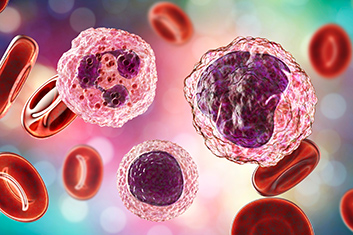Athletes must be tested for SCT
Topics Featured
Though it has raised alarm in the athletic community, exercising with sickle cell trait (SCT) is generally safe. With proper awareness and education, SCT poses no barriers to outstanding athletic performance.
SCT is a genetic condition that causes hemoglobin, blood’s oxygen-carrying protein, to be misshapen. Under certain conditions, red blood cells deform from their normal round disk shape into a warped “sickle” shape. Often, the triggering condition for a sickling crisis is low oxygen, such as at high altitudes. When athletes push their bodies to extreme conditions, the trait can cause the red blood cells to sickle and block blood vessels, denying oxygen to muscles and organs.
People at high risk for having sickle cell trait are those whose ancestors come from Africa, South or Central America, India, Saudi Arabia, and Caribbean and Mediterranean countries. Sickle cell trait occurs in about 8 percent of the U.S. African-American population, and between one in 2,000 to one in 10,000 in the Caucasian population.
Student athletes can begin to experience symptoms after only one to three minutes of sprinting, or in any other full exertion of sustained effort, thus quickly increasing the risk of complications. Many times, these complications occur when athletes are being pushed beyond their physiological limit while in an already-compromised position.
Individuals with SCT should recognize variable signs and symptoms of physical distress. These may include muscle “cramping” pain with weakness, while notably the muscles are usually not tense or hard, especially in the back or lower extremity; hyperventilation or difficulty to catch one’s breath; other muscle pain; abnormal general weakness; or undue fatigue.
All college athletes must be tested for SCT or provide proof of a prior test. The NCAA instituted this policy following a wrongful death lawsuit involving a student athlete who died suddenly from a sickling crisis during training without knowing that he carried the trait.
Planned emergency response and prompt access to medical care are critical components to ensure adequate response to an athlete who collapses or is in distress. Knowledge of a student athlete’s sickle cell trait status should facilitate prompt and appropriate medical care during a medical emergency. Institutions should have an emergency action plan in place that is reviewed and rehearsed at least annually with all athletics personnel. All coaches and the strength and conditioning staff should be certified in first aid and CPR.
For more information and resources, visit www.NCAA.org/health-safety.

For initial tests, the NCAA recommends using a sickle cell solubility test such as Streck’s SICKLEDEX®. The kit is easy to use, with unique packaging that offers longer stability and provides cost savings to the lab. Test results are available in 6 minutes. Also available is Sickle-Chex®, a positive and negative control that works with the SICKLEDEX kit and which does not require reconstitution.


CLIA Announces New 2024 Updates

